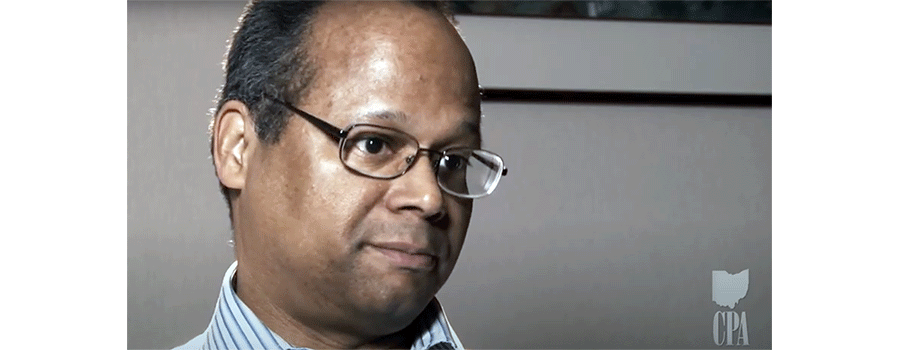Though we’re glad to be available to answer questions, we know sometimes you need information outside the normal business day. So the Parms team has put together these resources and tools to help you wherever and whenever.
Don’t see what you’re looking for? Chances are, others wonder about the same issue. If you want to pose a question or suggest a topic for our blog, please submit it on our contact page.
We look forward to beginning a conversation about how we can work together.
On the Plus Side
Parms + Company Blog
The Parms blog shares our insights about trending and time-tested topics that are important to our clients and the profession.
Educators Can Now Deduct out-of-pocket Expenses for COVID-19 Protective Items
Eligible educators can deduct unreimbursed expenses for COVID-19 protective items to stop the spread of COVID-19 in the classroom. COVID-19 protective items include, but are not limited to: * Face masks * Disinfectant for use against COVID-19 * Hand soap * Hand sanitizer * Disposable gloves * Tape, paint or chalk to guide social distancing * Physical barriers (for example, clear plexiglass) * Air purifiers * Other items recommended the Centers for Disease Control and Prevention recommends that individuals use for the prevention of the spread of COVID-19 Rev. Proc. 2021-15 PDF, issued today, provides guidance related to educators and their expenses under the COVID-related Tax Relief Act of 2020, which was enacted as part of the Consolidated Appropriations Act, 2021. The new law clarifies that unreimbursed expenses paid or incurred after March 12, 2020, by eligible educators for protective items to stop the spread of COVID-19 qualify for the educator expense deduction. The educator expense deduction rules permit eligible educators to deduct up to $250 of qualifying expenses per year ($500 if married [...]
OSCPA Profile (2014): Ted Johnson
2014 Archive Video when Ohio Society of CPAs. (OSCPA) honored our own Ted Johnson for Black History Month and Women's History Month.
Taxpayer Certainty and Disaster Tax Relief Act of 2020
Charitable Contribution Extensions The CARES Act included temporary changes to the limitation on charitable contributions in order to encourage taxpayers to support charities, hopefully lessening the impact of the pandemic on those in need. For individuals, the limitation on charitable contributions was increased from 60 percent of the contribution base to 100 percent for 2020. Also, individual taxpayers can claim a $300 above-the-line charitable contribution on 2020 tax returns. Meanwhile, the CARES Act increased the percentage limitation on charitable contribution deductions for corporations from 10 percent to 25 percent for qualified cash contributions made in 2020. A corporation may carry forward for five years any qualifying contribution that exceeds the 25-percent limit. The deduction limitation for contributions of food inventory from any trade or business is also temporarily increased from 15 percent to 25 percent for donations of food inventories made during 2020. All of these provisions are extended to 2021 under the new law. Tax Extenders The act also extends many popular tax breaks for individuals and businesses. These provisions, commonly [...]
No Surprises Act
The omnibus package also includes the No Surprises Act, the highlight of which is a prohibition on surprise medical bills, where a patient receives a separate, and sizable, medical bill from an out-of-network health provider while receiving treatment at an in-network facility. Due to the peculiarities of healthcare-related legislation, largely due to the Affordable Care Act, many changes are made to the Internal Revenue Code, but the breadth of actual tax impact is narrow, and in most cases nonexistent.
Economic Aid to Hard-Hit Small Businesses, Non-Profits, and Venues
The Economic Aid to Hard-Hit Small Businesses, Nonprofits, and Venues Act is largely related to the extension and enhancement of the popular Paycheck Protection Program. The significant majority of this section of the act does not have a direct tax effect. However, because the PPP does provide for the exclusion from income of forgiven PPP loans, it does have a tangential effect and is worth noting the existence of the extension. However, the PPP itself is beyond the scope of this Wolters Kluwer Briefing. This section of the act does not contain the allowance of a business expense deduction where the expenses were paid for with forgiven PPP loans. That was contained in the COVID-19-Related Tax Relief Act and is discussed above.
President Signs Year-End Agreement on Pandemic Relief, Stimulus, and Extenders
Late in the day on December 20, 2020, leaders in Congress announced that they had reached an agreement on a new round of relief for the ongoing COVID-19 pandemic and economic stimulus. The Consolidated Appropriations Act, 2021 finally took shape after several days of negotiations between the Democrats and GOP on Capitol Hill. The passage of the bill, as well as the negotiations, were closely tied to passage of an omnibus appropriations bill for the federal government for the 2021 fiscal year. Congress passed several short-term extensions of the appropriations bill to avoid a shutdown as the COVID-19 stimulus package was negotiated. The bill was approved in the House on December 21 by a vote of 327 to 85 and later passed in the Senate by a vote of 92-6. While Congress was finishing business on the omnibus package, it passed another short-term appropriations bill, extending the deadline to avoid a shutdown to December 28. The White House, on December 21, indicated that President Trump was expected to sign the appropriations bill. [...]







Connect With Parms